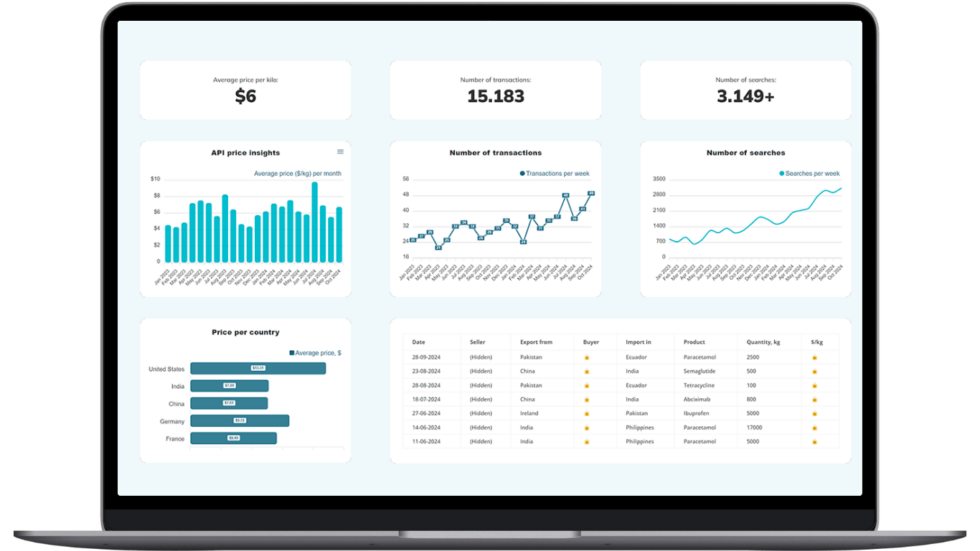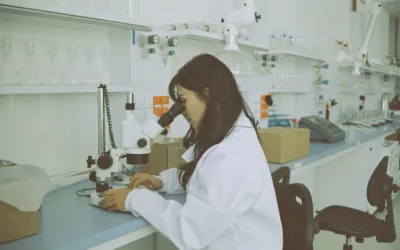
Priya Bhat| Posted on May 30, 2023
What does an industrial pharmacist do?
The pharmaceutical industry plays a critical role in the development, production, and distribution of life-saving medications. At the heart of this complex process is the industrial pharmacist, a highly skilled professional who combines scientific expertise with manufacturing knowledge.
In this article, we dive into the responsibilities and key functions of an industrial pharmacist, shedding light on their crucial role in the pharmaceutical landscape.
Understanding the Role of an Industrial Pharmacist
We all know the pharmacist who is providing your medicine in the pharmacy alongside the necessary information about how to use the drug. But, an industrial pharmacist is different; they are pharmaceutical professionals who work in manufacturing facilities, bridging the gap between research and production. They possess a unique skill set that combines pharmaceutical sciences, quality control, and regulatory compliance. Here are the key aspects of their role:
1. Drug Formulation and Development: Industrial pharmacists play a vital role in the formulation and development of new drugs. They collaborate with researchers, chemists, and other professionals to optimize the drug’s chemical composition, dosage forms, and delivery systems. By ensuring stability, safety, and efficacy, they contribute to the creation of new and improved medications.
2. Quality Assurance and Control: Maintaining stringent quality standards is crucial in pharmaceutical manufacturing. Industrial pharmacists are responsible for implementing quality assurance protocols and ensuring compliance with regulatory requirements. They perform thorough inspections, audits, and tests to monitor product quality, identify deviations, and initiate corrective actions when necessary.
3. Production Management: Industrial pharmacists oversee the production process to ensure efficiency, accuracy, and adherence to established protocols. They develop and implement standard operating procedures (SOPs), optimize manufacturing workflows, and coordinate with different departments to meet production targets while maintaining quality standards.
4. Regulatory Compliance: Pharmaceutical manufacturing is subject to strict regulations and guidelines to ensure patient safety. Industrial pharmacists play a crucial role in ensuring compliance with regulations such as Good Manufacturing Practices (GMP) and Good Laboratory Practices (GLP). They keep abreast of evolving regulatory requirements, conduct internal audits, and collaborate with regulatory authorities during inspections.
5. Risk Assessment and Management: Identifying and mitigating potential risks is essential in pharmaceutical manufacturing. Industrial pharmacists conduct risk assessments, analyze processes, and implement risk management strategies. They proactively address potential hazards, such as cross-contamination, equipment failures, and deviations from quality standards, to maintain product integrity.
Key Skills and Expertise
The role of an industrial pharmacist demands a diverse skill set and specialized knowledge. Here are some key skills and expertise required for success in this profession:
1. Pharmaceutical Sciences: Industrial pharmacists must have a strong foundation in pharmaceutical sciences, including pharmacology, medicinal chemistry, pharmaceutics, and pharmacokinetics. They should understand drug interactions, formulation principles, and the physiological impact of different dosage forms.
2. Manufacturing Processes and Equipment: Proficiency in pharmaceutical manufacturing processes, equipment, and technologies is vital. Industrial pharmacists should be familiar with unit operations like blending, granulation, tablet compression, and sterile processing. They should also stay updated with advancements in manufacturing automation and quality control instrumentation.
3. Regulatory Knowledge: Comprehensive knowledge of pharmaceutical regulations and guidelines is critical. Industrial pharmacists should be well-versed in GMP, GLP, International Council for Harmonisation of Technical Requirements for Pharmaceuticals for Human Use (ICH) guidelines, and relevant local regulatory frameworks. This ensures compliance and upholds product quality and safety standards.
4. Analytical Skills: Industrial pharmacists must possess strong analytical skills to interpret complex data, conduct quality control tests, and analyze manufacturing processes. Proficiency in statistical analysis, validation methodologies, and data interpretation is essential to monitor product quality and identify areas for improvement.
5. Communication and Collaboration: Effective communication and collaboration skills are necessary for industrial pharmacists to work across multidisciplinary teams. They must interact with researchers, engineers, quality control personnel, and regulatory authorities. Clear communication ensures alignment, fosters teamwork and facilitates efficient decision-making.
6. Problem-solving Abilities: Industrial pharmacists encounter challenges in manufacturing processes, quality deviations, and regulatory compliance. They should be adept at problem-solving, capable of identifying root causes and implementing corrective actions. Critical thinking skills enable them to troubleshoot issues and ensure smooth operations.
7. Continuous Learning and Adaptability: The pharmaceutical industry is dynamic and constantly evolving. Industrial pharmacists should have a thirst for knowledge staying updated with the latest advancements in drug development, manufacturing technologies, and regulatory requirements. Adaptability to changing industry trends and willingness to learn new skills are crucial for success.
Conclusion
Industrial pharmacists play a pivotal role in the pharmaceutical industry, merging scientific expertise with manufacturing know-how. Their contributions to drug formulation, quality control, regulatory compliance, and production management are integral to ensuring the availability of safe and effective medications.
By harnessing their skills in pharmaceutical sciences, manufacturing processes, and regulatory knowledge, industrial pharmacists contribute significantly to the advancement of healthcare worldwide.
The salary of an industrial pharmacist can change a lot per country. But, it’s, in general, higher than a pharmacist earns in a pharmacy. If you want to know how much (regular) pharmacists earn around the globe, you should check this article.
FAQ
What is the Role of an Industrial Pharmacist in Drug Development?
Industrial pharmacists play a critical role in drug formulation and development. They collaborate with researchers and chemists to optimize a drug's chemical composition, dosage, and delivery systems, ensuring stability, safety, and efficacy.
How Do Industrial Pharmacists Ensure Quality Assurance and Control?
Industrial pharmacists implement quality assurance protocols and conduct inspections, audits, and tests to ensure compliance with regulatory requirements. Their role is pivotal in identifying quality deviations and initiating corrective actions.
What Are the Responsibilities of an Industrial Pharmacist in Production Management?
Industrial pharmacists oversee the entire production process. They develop standard operating procedures (SOPs), optimize manufacturing workflows, and coordinate with various departments to meet production targets while maintaining quality standards.
How Do Industrial Pharmacists Handle Regulatory Compliance?
Compliance with regulations like Good Manufacturing Practices (GMP) and Good Laboratory Practices (GLP) is overseen by industrial pharmacists. They conduct internal audits, keep updated on regulatory requirements, and collaborate with regulatory authorities during inspections.
What is the Role of Risk Assessment in Industrial Pharmacy?
Industrial pharmacists are responsible for identifying and mitigating potential risks in the manufacturing process. This includes proactively addressing hazards like cross-contamination and equipment failures to maintain product integrity.
What Key Skills are Required for an Industrial Pharmacist?
An industrial pharmacist should possess a wide range of skills, including a strong foundation in pharmaceutical sciences, proficiency in manufacturing processes, comprehensive regulatory knowledge, strong analytical abilities, effective communication skills, problem-solving capabilities, and adaptability.
How Does the Salary of an Industrial Pharmacist Compare to a Regular Pharmacist?
The salary of an industrial pharmacist generally tends to be higher than that of a regular pharmacist working in a pharmacy, although this can vary by country.

Make Smarter API Decisions with Data
Access exclusive insights on global API pricing, export/import transactions, competitor activities and market intelligence.






Check out all other blogs here!